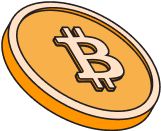How to Choose an Exchange to Buy and Trade Uniswap
You should evaluate the exchange's trading fees, supported payment methods, security protocols, and overall accessibility. Additionally, it's important to consider the liquidity of UNI on the platform and the exchange’s reputation within the Uniswap trading community. By carefully considering these factors, you can select the best exchange for your needs.
Trading Fees
Trading fees are a critical factor when choosing an exchange for UNI. These fees can vary widely between platforms and can significantly impact your overall trading profitability, especially for frequent traders. Some exchanges charge flat fees, while others use a tiered system based on trading volume. It's also worth checking if the exchange offers any discounts for using its native tokens to pay fees, which could reduce your overall costs.
Payment Methods
The range of payment methods supported by an exchange is another important consideration when trading UNI. Some cryptocurrency trading platforms offer a variety of options, including bank transfers, credit/debit cards, and cryptocurrency deposits. The availability of your preferred payment method can affect transaction speed and fees, so it's crucial to select an exchange that offers the most convenient and cost-effective options for you.
Security
Security is paramount when it comes to trading cryptocurrencies like UNI. Look for exchanges that implement robust security measures, such as two-factor authentication (2FA), cold storage for funds, and encryption protocols. Additionally, it's important to consider the exchange’s history regarding security incidents and its commitment to protecting user assets. A secure platform provides peace of mind and ensures that your funds are well-protected.
User Interface
The user interface of an exchange plays a significant role in the trading experience. A well-designed, intuitive interface makes it easier to navigate the platform, execute trades, and manage your portfolio. Whether you are a beginner or an experienced trader, a user-friendly interface will help you focus on your trading strategies rather than struggling with complex platform features.
Reputation Amongst UNI Traders
The reputation of an exchange within the Uniswap trading community can provide valuable insights into its reliability and performance. Researching reviews and feedback from other UNI traders can help you assess the platform's standing. An exchange with a strong reputation is more likely to offer better security, support, and overall service, making it a trustworthy choice for trading UNI.
Accessibility
Accessibility encompasses both the ease of use of the platform and its availability in your region. A user-friendly interface can greatly enhance your trading experience, making it easy to navigate the platform, place trades, and monitor your portfolio. Additionally, ensure that the exchange is available in your country and supports your local currency, as this will make transactions smoother and more convenient.
Liquidity of Crypto Assets
Liquidity is a crucial factor when trading UNI, as it affects how quickly and efficiently you can execute trades. High liquidity on an exchange means that your buy and sell orders can be filled quickly, with minimal slippage, even during periods of market volatility. Choosing an exchange with substantial UNI trading volumes ensures a seamless trading experience with competitive pricing.
Support
Customer support is an important aspect of any trading platform, especially when you encounter issues or have questions about your account. Look for exchanges that offer responsive and knowledgeable customer support through various channels, such as live chat, email, or phone. Reliable support can make a significant difference in resolving issues quickly and ensuring a smooth trading experience.
Types of Uniswap Exchanges and Trading Platforms
When trading Uniswap, there are various types of exchanges and platforms available, each offering different features tailored to specific trading needs.
Swap Exchanges
When it comes to Uniswap and decentralized finance, swap exchanges are at the core of its functionality. Swap exchanges allow users to trade one cryptocurrency for another directly from their wallets, without the need for a centralized intermediary. These platforms leverage automated market-making (AMM) algorithms, where liquidity pools are funded by users who earn fees in return. This seamless, peer-to-peer trading model provides flexibility, transparency, and accessibility, making it easier for anyone to participate in the crypto market. With Uniswap's swap exchanges, traders can quickly and efficiently exchange tokens, enjoying a decentralized, trustless environment.
Hybrid Exchanges
Hybrid exchanges combine features of both centralized and decentralized platforms, offering the user control and security of a DEX while maintaining the liquidity and trading speed of a centralized exchange. These platforms aim to provide the best of both worlds, making them an attractive option for trading UNI with enhanced security and efficiency.
Centralized Exchanges with UNI Listings
Centralized exchanges with UNI listings offer high liquidity and a wide range of trading pairs. These platforms are managed by a central authority, providing fast transaction speeds and additional services such as margin trading. They are ideal for traders who prioritize liquidity and want access to advanced trading tools.
Yield Farming Platforms
Yield farming platforms allow users to stake their UNI tokens in various DeFi protocols to earn rewards. These platforms are popular among users looking to maximize returns on their UNI holdings by providing liquidity to pools or lending protocols. However, yield farming involves risks such as impermanent loss, so it’s important to understand the mechanics before participating.
Mobile Trading Apps
Mobile trading apps offer the convenience of trading UNI on the go. These platforms are optimized for mobile devices, providing all the necessary features for monitoring markets, executing trades, and managing portfolios from anywhere. Mobile apps are ideal for traders who need flexibility and real-time access to the market.
How to Start Trading UNI
- Sign Up on a Uniswap Exchange: Choose an exchange that supports Uniswap and create an account by providing your email and setting a password. Complete any necessary identity verification steps.
- Deposit Funds: Deposit funds into your account using your preferred payment method, such as a bank transfer, credit card, or another cryptocurrency.
- Select a UNI Trading Pair: Choose the UNI trading pair you want to trade, such as UNI/USDT or UNI/ETH.
- Place Your Trade: Place an order to buy or sell UNI, choosing between a market order for immediate execution or a limit order to set your preferred price.
- Withdraw Your UNI: After trading, consider withdrawing your UNI to a secure wallet to ensure the safety of your assets.
Exchange Fees When Buying and Selling UNI
Understanding the fees associated with trading Uniswap (UNI) is essential for managing costs and maximizing profitability.
Trading Fees
Trading fees are charged on each transaction you execute on an exchange. These fees can vary depending on the platform and the trading volume. Some exchanges may offer discounts for using their native tokens to pay for fees, which can reduce overall trading costs.
Withdrawal Fees
Withdrawal fees are charged when you transfer UNI from an exchange to an external wallet. These fees can differ based on the exchange and the network costs associated with the transaction. Minimizing withdrawal fees is important for preserving your profits, especially if you frequently move assets off the exchange.
Deposit Fees
Deposit fees may apply when you fund your account with fiat currency or other cryptocurrencies. These fees can vary depending on the payment method used and the exchange's policies. It’s important to compare these fees, particularly if you plan to deposit funds frequently.
Network Fees
Network fees, also known as gas fees, are incurred when transferring UNI on the Ethereum blockchain. These fees fluctuate based on network congestion and can impact the overall cost of trading UNI, particularly when moving funds between wallets or exchanges.
History of Uniswap
Uniswap was launched in November 2018 by Hayden Adams as a decentralized exchange (DEX) built on the Ethereum blockchain. Uniswap introduced the Automated Market Maker (AMM) model, which uses liquidity pools instead of traditional order books to facilitate trades. This innovation democratized access to liquidity provision and trading, making Uniswap a cornerstone of the decentralized finance (DeFi) movement. The native token, UNI, was introduced in September 2020, providing governance rights to its holders and further decentralizing the platform’s control. Today, Uniswap is one of the most widely used DEXs in the world.
The Unique Value Proposition of Uniswap
Uniswap’s unique value proposition lies in its decentralized nature and the innovative AMM model it introduced. Unlike traditional exchanges that rely on order books, Uniswap allows users to trade directly from their wallets through smart contracts, ensuring greater security and privacy. Additionally, Uniswap’s liquidity pools allow anyone to become a liquidity provider and earn fees, democratizing the financial ecosystem. These features make UNI not just a governance token but also a vital part of the DeFi landscape, influencing trading strategies and exchange choices.
The Future of Uniswap in the Cryptocurrency Market
Uniswap is poised to continue playing a pivotal role in the cryptocurrency market, particularly within the decentralized finance (DeFi) ecosystem. As more projects and users embrace decentralized exchanges and the AMM model, Uniswap’s influence is likely to grow. The introduction of Layer 2 solutions and ongoing protocol upgrades could further enhance Uniswap’s scalability and reduce transaction costs, making it even more attractive to users. With its commitment to decentralization and innovation, Uniswap is well-positioned to remain a key player in the crypto space, making UNI a potentially valuable asset for traders and investors.
Other Altcoins You Can Trade
As you explore the decentralized trading possibilities that Uniswap provides, it's beneficial to consider the broader landscape of altcoins available in the market. Each of these assets offers something unique, whether it's scalability, privacy, or cutting-edge blockchain technology. These altcoins represent diverse areas within the crypto ecosystem, giving you the opportunity to diversify your holdings and explore new horizons. Here are a few notable options to consider:
FAQ: Uniswap Exchange Platforms
What is the main difference between Uniswap and traditional exchanges?
Uniswap operates as a decentralized exchange using an Automated Market Maker (AMM) model, which allows users to trade directly from their wallets through smart contracts. Unlike traditional exchanges, Uniswap does not rely on order books but instead uses liquidity pools to facilitate trades, offering greater privacy and security.
How can I ensure my UNI tokens are safe on an exchange?
To ensure the safety of your UNI tokens on an exchange, choose platforms with strong security measures, such as two-factor authentication (2FA), cold storage for assets, and encryption protocols. Additionally, consider withdrawing your UNI to a secure hardware wallet after trading to reduce the risk of theft or loss due to exchange vulnerabilities.
Are there exchanges that offer zero-fee trading for UNI?
Some exchanges may offer zero-fee trading for UNI as part of promotional campaigns or for certain trading pairs. However, these offers are typically limited in time or scope. It’s important to read the exchange’s fee structure and terms to understand any potential costs fully.
What are the benefits of using a decentralized exchange for trading UNI?
Decentralized exchanges (DEXs) like Uniswap allow users to trade directly from their wallets without the need for a central authority. This provides greater security and privacy, as you retain control of your funds. DEXs are also censorship-resistant and offer a wider range of tokens than many centralized exchanges.
Can I trade UNI on a mobile app?
Yes, many exchanges offer mobile apps that allow you to trade UNI on the go. These apps typically provide the same functionality as their desktop counterparts, including real-time price tracking, order placement, and portfolio management. Trading on a mobile app can be convenient, but ensure that the app is secure and regularly updated.
How does staking work with UNI?
While UNI is primarily a governance token, some platforms allow you to stake UNI to participate in governance decisions or earn rewards. Staking typically involves locking up your tokens for a period in exchange for potential benefits like voting power or yield rewards. However, staking UNI is generally less common than staking other tokens that offer higher yields.
What are the tax implications of trading Uniswap (UNI)?
The tax implications of trading Uniswap (UNI) vary by country, but generally, profits from trading UNI are subject to capital gains tax. It’s important to keep detailed records of all your transactions, including purchase and sale prices, to accurately report your gains or losses. Consulting with a tax professional can help ensure compliance with local tax laws.
Can I participate in yield farming with UNI?
Yes, UNI can be used for yield farming on various DeFi platforms. By providing liquidity to certain pools or protocols, you can earn rewards in the form of additional tokens. However, yield farming carries risks, such as impermanent loss, so it’s important to understand these risks before participating.
Is Uniswap’s AMM model sustainable long-term?
Uniswap’s AMM model has proven effective in providing continuous liquidity without relying on traditional order books. As the DeFi space grows, this model is expected to evolve with ongoing improvements, including Layer 2 scaling solutions and new protocol features. While challenges remain, the AMM model is likely to remain a cornerstone of decentralized trading.
Conclusion: The Best UNI Buy & Sell Platforms Ranked by Bitcoin.com
Choosing the best platform to buy and sell Uniswap (UNI) is essential for optimizing your trading experience. Each platform offers unique features, so it’s important to evaluate them based on your specific trading needs. Remember, our rankings are regularly updated to reflect the latest developments in the market, so check back frequently for the most current information on the top platforms for trading UNI.
Business & Partnership Enquires
For business or partnership queries, please contact us through affiliates@bitcoin.com. Our marketing experts will assist you as soon as possible.


























